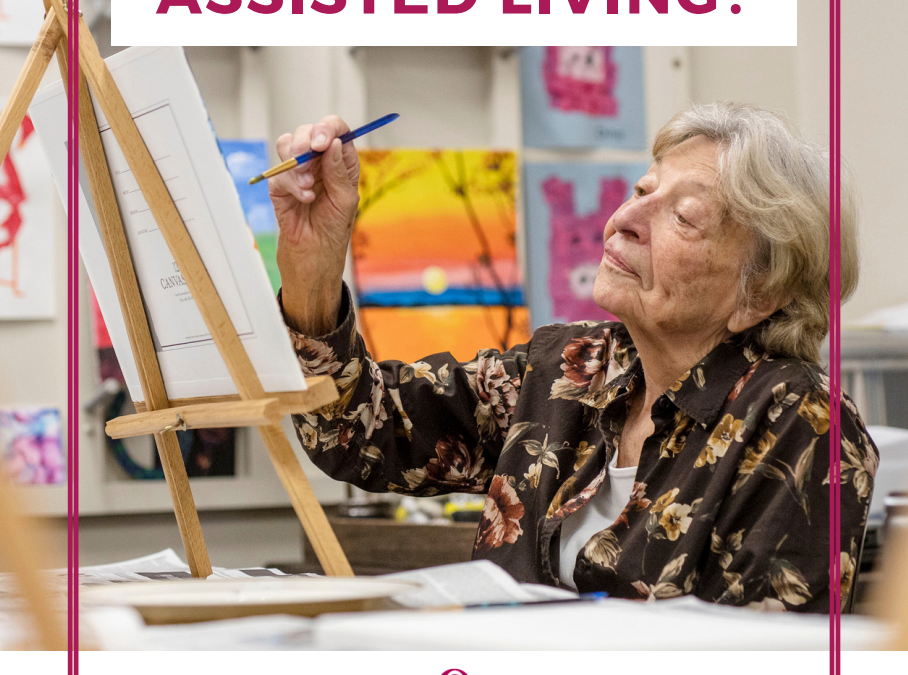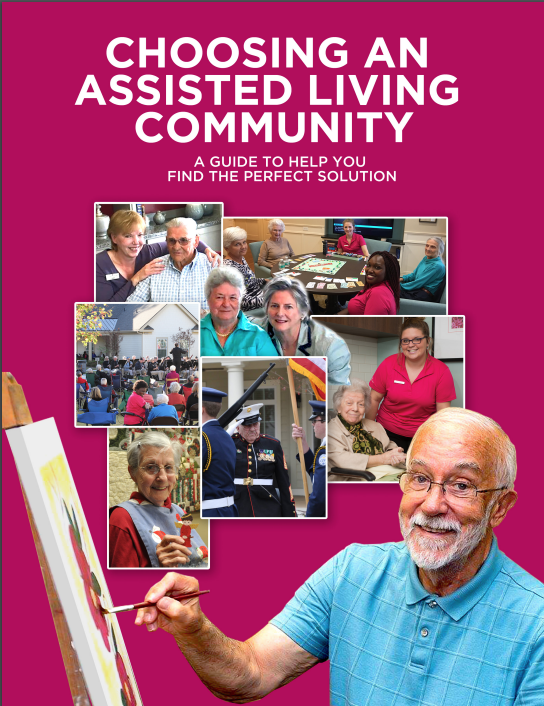Visiting aging parents and loved ones helps to assess their readiness for assisted living.
Many of us will likely visit our aging parents for the first time in a while this holiday season. The visit may provide the chance to assess how your loved ones are doing and decide whether they require or would welcome assistance. There is nothing like an in-person visit to determine how things are going, even if you frequently contact them via phone or video conversations. If during your holiday visit, you notice…
- A decrease in your loved one’s personal hygiene
- Trouble keeping up with bills
- The refrigerator is bare or mostly stocked with spoiled foods
- Trash and routine household chores are piling up
- A change in your loved one’s mobility, unsteady and/or evidence of minor injury
- Medications scattered, unorganized, or evidence of confusion on when or what to take
- Change in phone calls such as being forgetful or confused on day or time of day
- The well-loved home isn’t getting the same care and maintenance it once had
People are not often thrilled about the prospect of moving into an assisted living community. The decision is frequently influenced by a change in situation, such as the death of a spouse, the deterioration of a medical condition, or just experiencing more difficulties with daily activities. Each case is specific to the person.
A few telltale signs indicate a senior’s need for assisted living. You will feel more confident in your choice if you pay attention to their current abilities. Look for the following warning signs:
Worsening Physical Health As seniors age, their physical condition deteriorates. There may be restrictions on how freely they move around their homes. Additionally, as people age, they risk contracting a chronic illness like heart disease or Alzheimer’s disease. When elders need more help getting around or have frequent falls, it might be time to look into the choices.
Isolation Older people who live alone are more likely to experience loneliness regularly. When loneliness develops into a lack of desire to socialize, engage in hobbies, or communicate with family members, they become susceptible to depression and run the risk of losing their mobility and their medical problems can worsen. It may be time to look for something new if you’ve noticed that your loved one is regularly bored or lonely and lacks interest or motivation. Residents in assisted living communities get the chance to interact with others through fun activities like game nights, fitness classes, gardening and creative arts.
Inability to Complete Daily Tasks As people get older, problems related to everyday tasks are some of the most common issues. Activities of daily living, or ADLs for short, are duties that must be performed daily, including grooming, using the toilet, taking medications as prescribed, dressing, and bathing. Medication management is the ADL that poses the greatest risk of injury to senior citizens. Any incorrect dosage administered at the wrong time may be harmful. Seniors who live in assisted living communities can get specialized services to aid them with daily tasks. It gives you comfort to know that your loved one is getting the help they require, and it also helps them maintain their dignity.
Caregiver Burnout Caregivers are under pressure to meet a senior’s needs while simultaneously managing household chores, including cooking, cleaning, shopping, yard work, and laundry. The relationship between you and your spouse or parent may be severely strained as a result of your lengthy to-do list. When you are exclusively in charge of ensuring the physical and mental health of your loved one, your own well-being suffers. As caregivers are continually putting others before themselves, they are frequently the last to recognize their own exhaustion and burnout. It is crucial to assess your needs and give them top priority. Ask for help from an assisted living community if you are having trouble keeping up. In some circumstances, a brief respite stay is provided to give you a break and give your loved one a chance to get to know the neighborhood.
The general guideline is to listen, respect, and solicit your parent’s ideas—unless your parent is in immediate danger, and you must act without delay despite any objections. Do not swoop in and attempt to seize control. Even if you can see the need, try not to impose your agenda. Inform them of your worries and your desire to do everything within your power to improve their quality of life. Do not feel that you have failed if your parents choose not to participate in the talk. Ideally, you will have sown a seed, and there will be a subsequent visit and conversation. Also, keep in mind that your parents might be more receptive to discussing their requirements with someone besides you, such as their peers, siblings, clergy, or possibly a geriatric care manager. At Camellia Place in Woodstock, GA, we are aware of how difficult this decision is. Our mission is to close the gap between accepting assisted living services and maintaining as much independence as possible. We provide a continuum of customized services that can be added to or subtracted from as necessary. To arrange a visit at Camellia Place, click here to get in touch with us!



